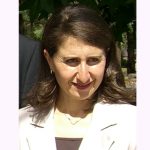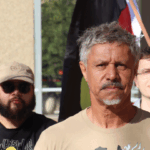Police Investigate Outspoken Doctor

A former detention centre psychiatrist who spoke out about the death of a detainee on Manu Island was put under criminal investigation by the Australian Federal Police (AFP) for being critical of the medical care given to the man, who died after a cut on his leg became infected.
The medical records of Hamid Khazaei, who died in September 2014, were published by both The Australian newspaper and the Australian Broadcasting Corporation in December, three months after the man’s death.
In discussing the case to the media, Dr Young was critical of both his own employer International Health and Medical Services (IHMS) and the Department of Immigration over Khazaei’s death, particularly because the seriously ill man had to wait 24 hours before being taken to Papua New Guinea for treatment.
Dr Young was suspected of leaking the patient’s medical files to the media, which showed that septicaemia developed as a result of his leg being left untreated.
Details of the investigation came to light after Dr Young used the Privacy Act to access his own AFP files.
Extensive Report
The AFP compiled hundreds of pages of notes on Dr Young, and although much of it has been heavily redacted, the documents confirm he was suspected of ‘unauthorised disclosure of information’ under section 70 of the Commonwealth Crimes Act for making “comments highly critical of… [the Immigration Department] and IHMS in their handling of asylum seeker medical care, in two news reports”.
The AFP’s inquiry was undertaken by a special division set up to handle sensitive political matters, including comments critical of the government.
Whistleblower Persecution
Section 70 has been criticised by the Australian Law Reform Commission for criminalising those who do the right thing by exposing misconduct, crime and corruption within government departments and agencies.
In 2014, the section was indeed used by then Immigration Minister Scott Morrison to expel 10 members of the charity ‘Save the Children’ from Nauru Detention Centre for speaking out about the sexual abuse of children in that facility. The charity is now considering legal action against the government, with a report recommending they should be compensated.
And in 2015, the power of the Federal government to prosecute those who expose abuse and misconduct within government departments was significantly broadened by the passage of the Border Force Act, section 42 of which make it a crime for ‘entrusted persons’ – including doctors, counsellors and government employees – to make a record or disclose information about misconduct, corruption or human rights abuses in detention centres.
The maximum penalty for that offence is two years imprisonment.
AFP Response
The AFP has confirmed that the investigation of Dr Young was undertaken to ascertain whether he disclosed Commonwealth information without authorisation.
As part of its investigation, the AFP accessed Dr Young’s metadata and interviewed his colleagues, finding no evidence of a leak during the period surrounding the publication of the media articles.
While Dr Young oversaw the mental health of asylum seekers in all of the Australian-operated detention centres from 2011 to mid-2014, he was no longer in that position at the time of Mr Khazaei’s death in September 2014, and did not have access to the man’s medical records.
Campaigning for Change
Since resigning from his position with IHMS, Dr Young has been a champion for change within the offshore detention system.
He has condemned the Department of Immigration for its “lack of transparency”, as well as the “appalling conditions” within detention centres.
He has called for a Royal Commission into allegations of sexual abuse at Nauru detention centre, and has accused the Immigration Department of attempting to cover up those allegations, rather than expose and prosecute alleged paedophiles. The abuses were also reported by ‘Save the Children’.
Many Australians are surprised and concerned that, in our so-called ‘liberal democracy’, those who courageously – at great personal cost – speak out about crime, corruption and abuses within government agencies such as police forces and the Immigration Department face the prospect of criminal prosecution and imprisonment.
But with both state and federal governments prioritising secrecy and the suppression of dissent over transparency and accountability, we can only expect more laws like those currently in place.






